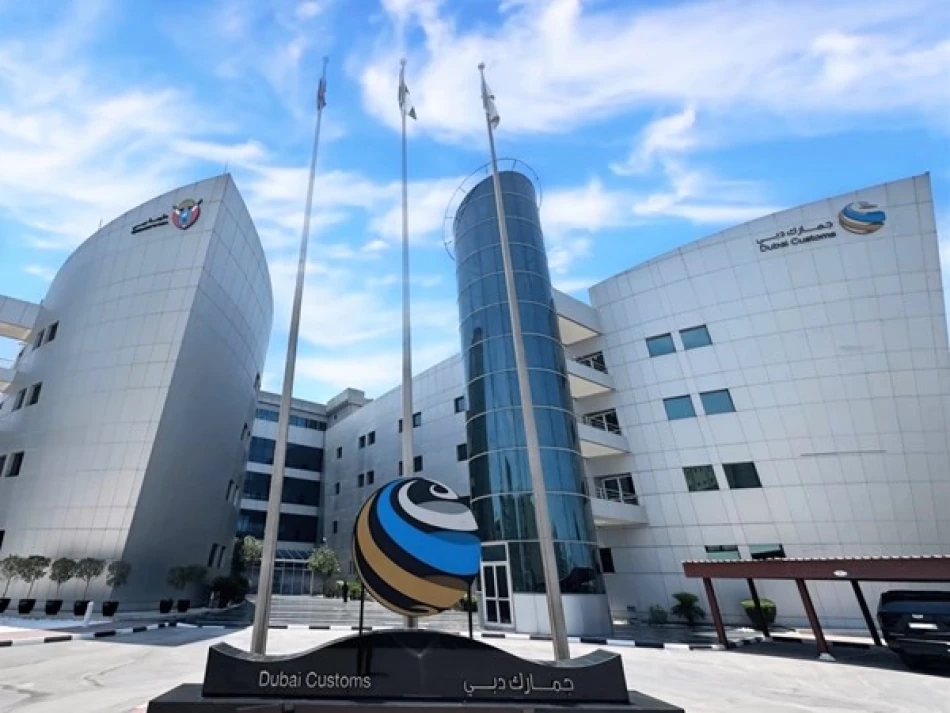
Discover Dubai Customs' Recruitment Expo: Empowering Emirati Talent
Dubai Customs Doubles Down on Emiratization with Aggressive Local Talent Push
Dubai Customs is ramping up its national workforce development strategy, showcasing specialized career opportunities and training programs at this year's employment fair. The initiative reflects the UAE's broader push to reduce dependence on foreign expertise in critical infrastructure sectors, with customs and logistics emerging as key battlegrounds for talent localization.
Track 33 Program Delivers Concrete Results
The centerpiece of Dubai Customs' recruitment drive is its "Track 33" program, which has already graduated 73 Emirati customs inspectors across four cohorts. These high school graduates have been deployed across Dubai's land, sea, and air customs checkpoints, representing a significant injection of local talent into frontline operations.
Beyond government placements, the program has also successfully placed 14 candidates in private sector logistics roles, demonstrating the transferability of customs training to broader supply chain operations. This dual-track approach maximizes the program's impact while addressing skills shortages across Dubai's trade infrastructure.
Strategic Timing Amid Economic Diversification
The recruitment push comes as Dubai accelerates its D33 economic agenda, which aims to double the emirate's economy by 2033. Trade facilitation and logistics efficiency are critical pillars of this strategy, making customs operations increasingly vital to Dubai's competitiveness as a global trade hub.
Regional Context and Competition
Dubai's approach mirrors similar Emiratization drives across the Gulf, where governments are balancing economic diversification with job creation for growing national populations. Saudi Arabia's Vision 2030 and Qatar's National Vision 2030 similarly prioritize skills development in trade-related sectors, creating regional competition for logistics talent.
Dubai Logistics Academy: Building Institutional Capacity
The Dubai Logistics Academy serves as the training backbone for these initiatives, offering specialized courses designed to meet international standards. This institutional approach suggests Dubai Customs is building long-term capability rather than pursuing short-term hiring quotas.
The academy model also positions Dubai as a potential regional training hub, potentially attracting students from other GCC countries and generating additional revenue streams from education services.
Market Implications for Trade and Employment
For businesses operating through Dubai's ports and airports, the influx of newly trained local customs officers could mean more consistent service delivery and reduced turnover rates compared to expatriate staff. However, the transition period may require additional training investments from private sector partners.
The immediate job interview component of the employment fair signals urgency in filling positions, likely driven by increased trade volumes and the need to maintain Dubai's reputation for efficient customs processing. This approach also reflects confidence in the screening and training processes already established.
Long-term Strategic Positioning
Dubai Customs' aggressive localization strategy positions the emirate to maintain its trade hub status while reducing operational risks associated with expatriate workforce dependency. As global supply chains face increasing scrutiny over security and efficiency, having a stable, locally trained customs workforce becomes a competitive advantage.
The success of Track 33 and similar programs will likely influence other UAE government entities to adopt comparable approaches, potentially accelerating Emiratization across critical infrastructure sectors beyond customs and logistics.
Most Viewed News

 Layla Al Mansoori
Layla Al Mansoori






